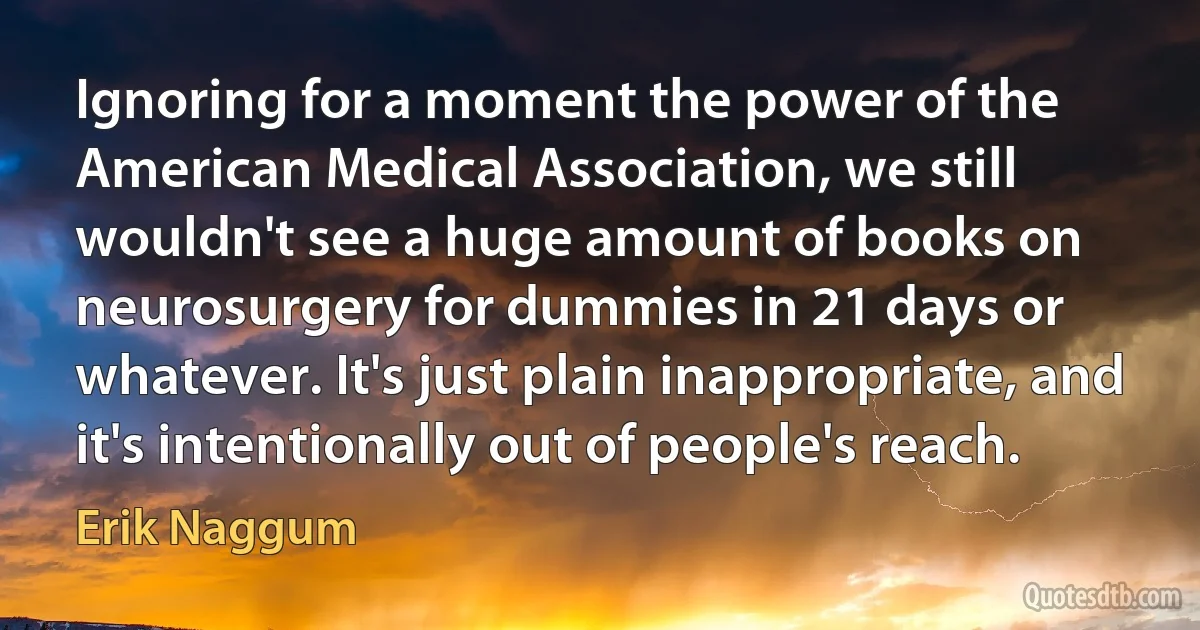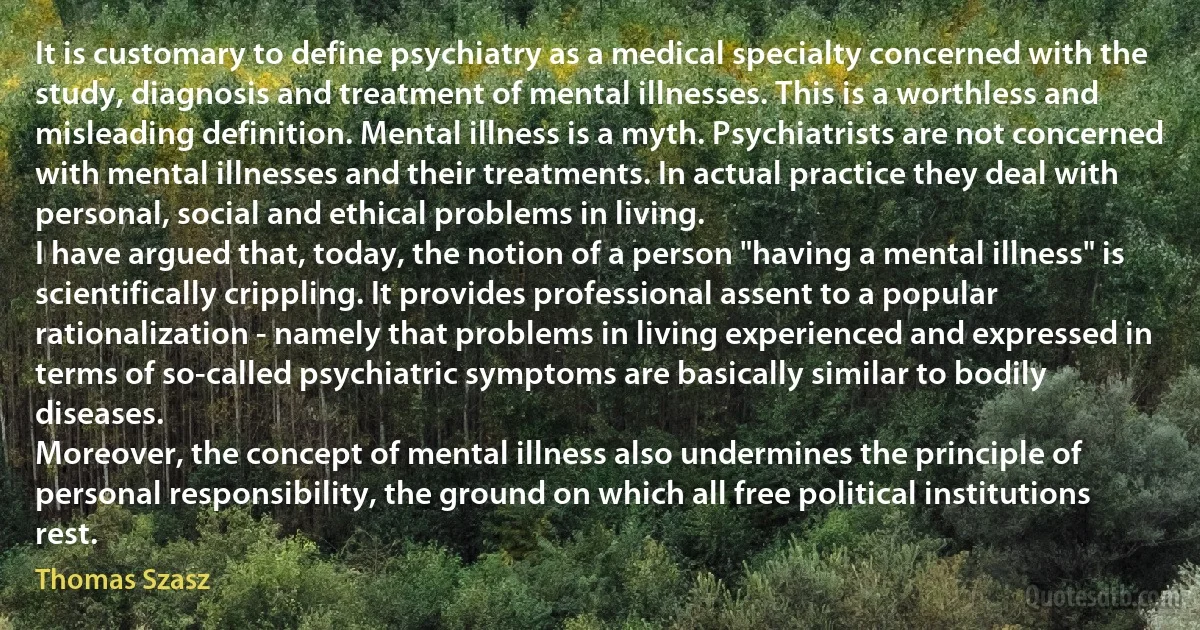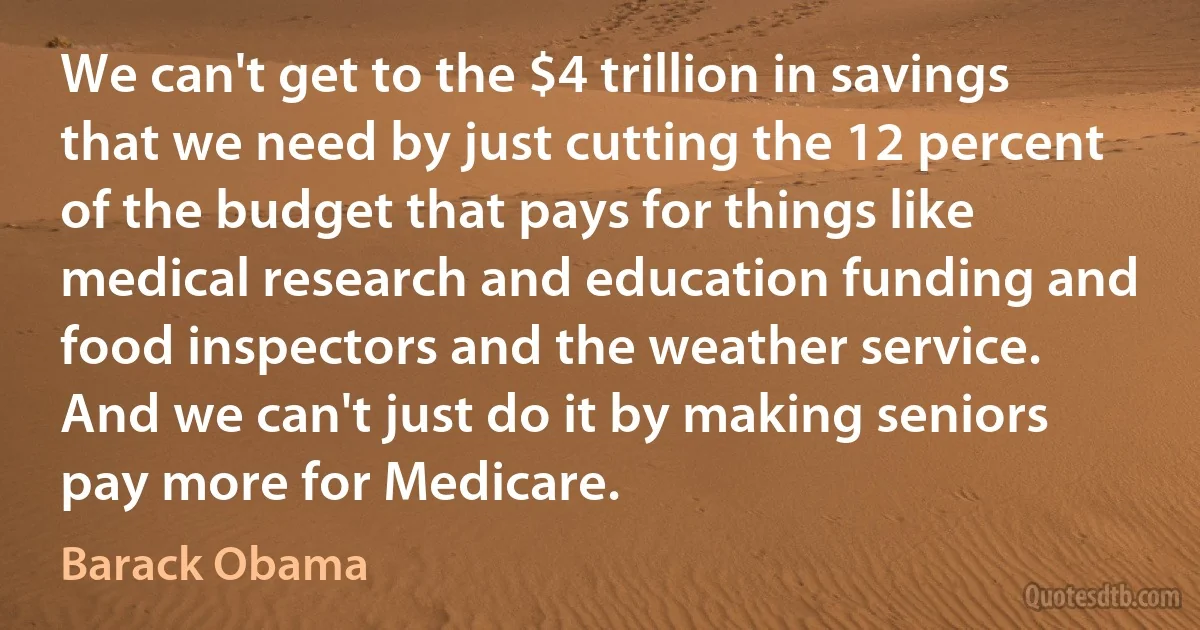Medical Quotes - page 11
Whereas many socialists have recently put their faith in market socialism, nineteenth-century socialists were, by contrast, for the most part opposed to market organization of economic life. The mainstream socialist pioneers favored something that they thought would be far superior, to wit, comprehensive central planning, which, it was hoped, could realize the socialist ideal of a truly sharing society. And the pioneers' successors were encouraged by what they interpreted as victories of planning, such as the industrialization of the Soviet Union and the early institution of educational and medical provision in the People's Republic of China. But central planning, at least as practiced in the past, is, we now know, a poor recipe for economic success, at any rate once a society has provided itself with the essentials of a modern productive system.

Gerald Cohen
This is an honour that reflects the quality of science supported by the Medical Research Council, in particular at the Laboratory of Molecular Biology in Cambridge. In my case, credit should go to the numerous dedicated postdocs, students, associates and colleagues who made crucial contributions to the work.

Venkatraman Ramakrishnan
The gist of my argument is that men like Kraepelin, Bleuler and Freud were not what they claimed or seem to be-namely, physicians or medical investigators; they were, in fact, religious-political leaders and conquerors. Instead of discovering new diseases, they extended, through psychiatry, the imagery, vocabulary, jurisdiction, and hence the territory of medicine to what they were not, and are not, diseases in the original Virchowian sense.

Thomas Szasz
Religious and medical propaganda to the contrary notwithstanding, I hold some simple truths to be self-evident. One of these truths is that just as the dead do not rise from the grave, so drugs do not commit crimes. The dead remain dead. Drugs are inert chemicals that have no effect on human beings who choose not to use them. No one has to smoke cigarettes, and no one has to shoot heroin. People smoke cigarettes because they want to, and they shoot heroin because they want to.

Thomas Szasz
We speak of a person being "under the influence” of alcohol, or heroin, or amphetamine, and believe that these substances affect him so profoundly as to render him utterly helpless in their grip. We thus consider it scientifically justified to take the most stringent precautions against these things and often prohibit their nonmedical, or even their medical, use. But a person may be under the influence not only of material substances but also of spiritual ideas and sentiments, such as patriotism, Catholicism, or Communism. But we are not afraid of these influences, and believe that each person is, or ought to be, capable of fending for himself.

Thomas Szasz
To say that a great genius is half-mad, while recognizing his artistic prowess, is worth as much as saying that he was rheumatic, or that he suffered from diabetes. Madness, in fact, is a medical expression to which a balanced critic should pay no more heed than he would to the accusation of heresy brought by the theologian, or to the accusation of immorality brought by the public prosecutor.

James Joyce
The proletarian revolution ought now, by a little ray of kindness, to illuminate the gloomy life of prisoners, shorten Draconian sentences, abolish barbarous punishments - the use of manacles and whippings - improve, as far as possible, the medical attention, the food allowance, and the conditions of labor. That is a duty of honor.

Rosa Luxemburg
I had, in my legal practice, often encountered really shocking examples of the devastating impact of the costs of long-term medical care on meagre incomes. And, just before I was elected, I had my own personal experience in paying very considerable bills for my mother's terminal illness.

Judy LaMarsh
They could have gotten help for this infertility but they believed that interfering with the reproductive process, even if it was faulty, was anti-God. It was against His plan. It never occurred to them that God may have provided the world with a vast array of very brainy medical types for the very reason of solving problems such as theirs. However, there is one thing that the medical profession cannot do and that is save people from being idiots.

Craig Ferguson
I am confident that Japan will recover and rebuild because of the strength and spirit of the Japanese people. Over the last few days, they've opened up their homes to one another. They've shared scarce resources of food and water. They've organized shelters, provided free medical care, and looked out for their most vulnerable citizens. One man put it simply: "It's a Japanese thing. When hard times hit, we have to help each other.”.

Barack Obama
Thirty years from now the big university campuses will be relics. Universities won't survive. It's as large a change as when we first got the printed book. Do you realize that the cost of higher education has risen as fast as the cost of health care? And for the middle-class family, college education for their children is as much of a necessity as is medical care-without it the kids have no future. Such totally uncontrollable expenditures, without any visible improvement in either the content or the quality of education, means that the system is rapidly becoming untenable. Higher education is in deep crisis.

Peter Drucker



